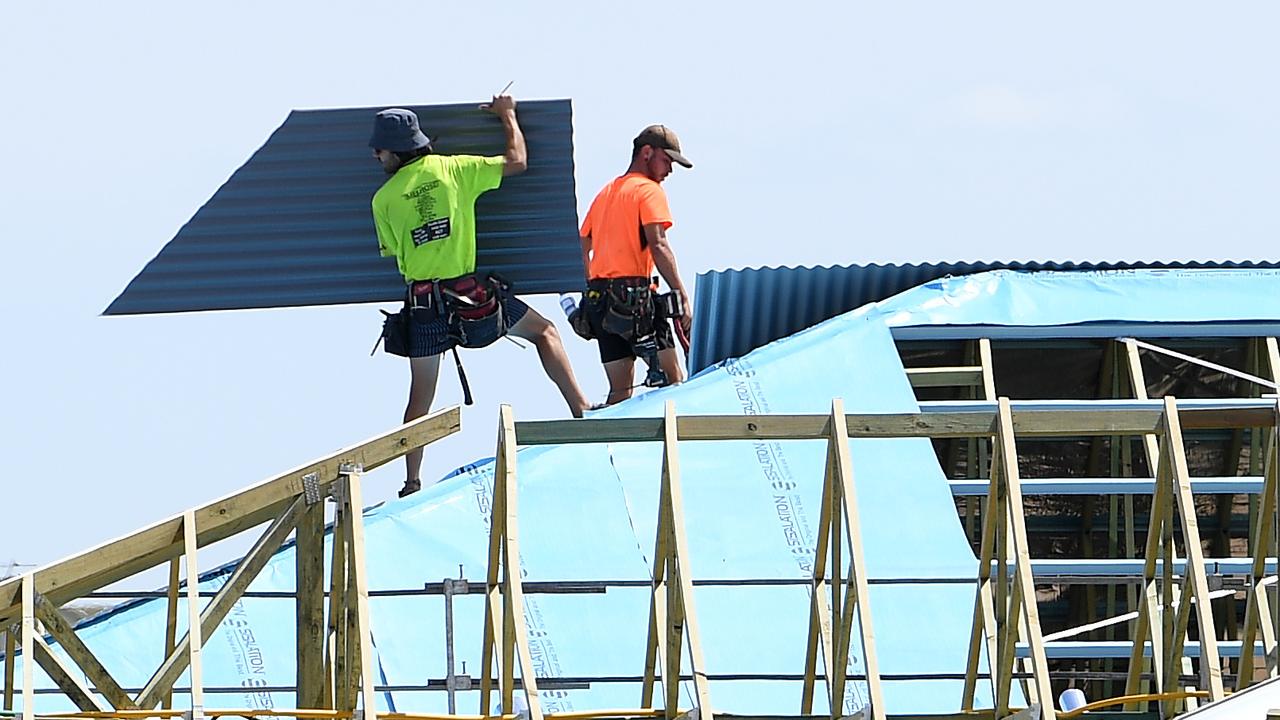Forget future vision, pollies on short-term survival course only
I HAVE a theory about modern-day politicians. I suspect they regularly run polls on sensitive issues.
I HAVE a theory about modern-day politicians. I suspect they regularly run polls on sensitive issues.
This could include, for example, matters such as boatpeople, big Australia and new tax regimes.
And if the results come back "80:20 against" the issue is quietly dropped. No matter how "right" the cause, if public sentiment is firmly against the issue no amount of effort or eloquence will sway the majority.
Alternatively, if the polled issue comes back just "55:45 against" then politicians know they have a chance of changing public opinion. In other words, smart politicians only risk their political capital by backing issues that fulfil a broadly approved ideological agenda and that are winnable in the electorate.
This is the sort of thinking you would expect in an era when power is finely balanced: politicians cannot afford to offend any interest group. Indeed, I suspect that the first thing politicians do when they wake up in the morning is not think about how to run the country but rather how to get into or stay in office. It's like Maslow's hierarchy of needs. Once a politician has satisfied the basic need to survive then they look to more altruistic pursuits such as managing the nation.
But before we all condemn politicians for their self-interested priorities, perhaps it is as well to consider how business thinks. When a chief executive officer wakes up in the morning, do they think about how their business might be positioned for their successor in the 2020s? Or are they focused on delivering results against budget for the 2010-11 financial year? Chief executives will tell you the answer is both, just as politicians will tell you it's both. I don't believe either of them.
No point making the right decision for Australia in 2020 if that decision is going to get you unelected in 2013. In this world, the key to influencing public policy is the ability to win the hearts and minds of middle Australia. And that's because issues are polled before politicians invest their backing and careers. That's why there have been no new dams or coal-fired power stations built to service metropolitan Australia for a generation.
Politicians know these are lost causes; they are get-you-unelected causes. No state politician has dared mention the "d" word for a decade. And that's because mums and dads believe all dams -- without exception -- are either unfillable or ecologically irresponsible or both. Whether they are or not is no longer the point. Middle Australia believes it to be the case. Better to develop pipelines, desalination plants and wind farms even if there is only marginal net economic and environmental benefit: such developments allow you to be seen to be "doing something". Whether such action actually resolves the problem is a minor consideration.
The new battleground is not in securing the right lobbyist to whisper sweet nothings in a minister's ear nor in commissioning the right consultant to show the impact of a particular policy. The new battleground is in getting an issue to a position where public sentiment is no worse than "55:45 against".
In fact, as long as an issue sits in the "80:20 against" space you can expect politicians to not only not support a cause but in fact to actually amplify negative public sentiment.
Indeed, there is a fair incentive for politicians to jump on the bandwagon.
How about those banks? And those greedy property developers! You know they're all in cahoots.
We are all shareholders in a $1.3 trillion enterprise called Australia Inc, which is being steered by politicians of either persuasion on a short-term survivalist course. No one has the political capital to set and sell a bold vision for the future, be that a big Australia or a small Australia. The reality is that we will probably muddle along somewhere in between because such a course follows a path of least public resistance.
What this nation actually needs is something that the political process seems incapable of delivering: the capacity to galvanise the nation behind a particular course of action. If we believe in a common vision, dissenters get less purchase in the demographic market.
More than two years after the onset of the global financial crisis and at the head of a decade of closer economic ties with China, Australia desperately needs a vision for the nation that floats high above the short term and that focuses on what we can and want to be.
Once we know where we are going, the political process of getting there is made so much easier and more efficient.
Bernard Salt is a KPMG Partner
Facebook.com/ BernardSaltDemographer;
twitter.com/bernardsalt;


